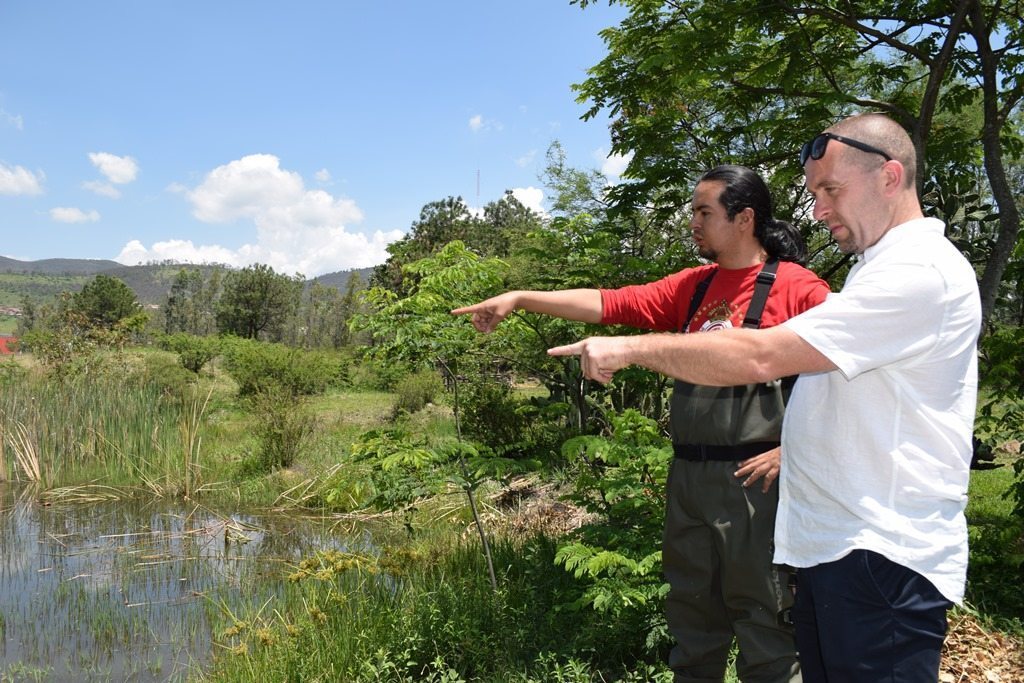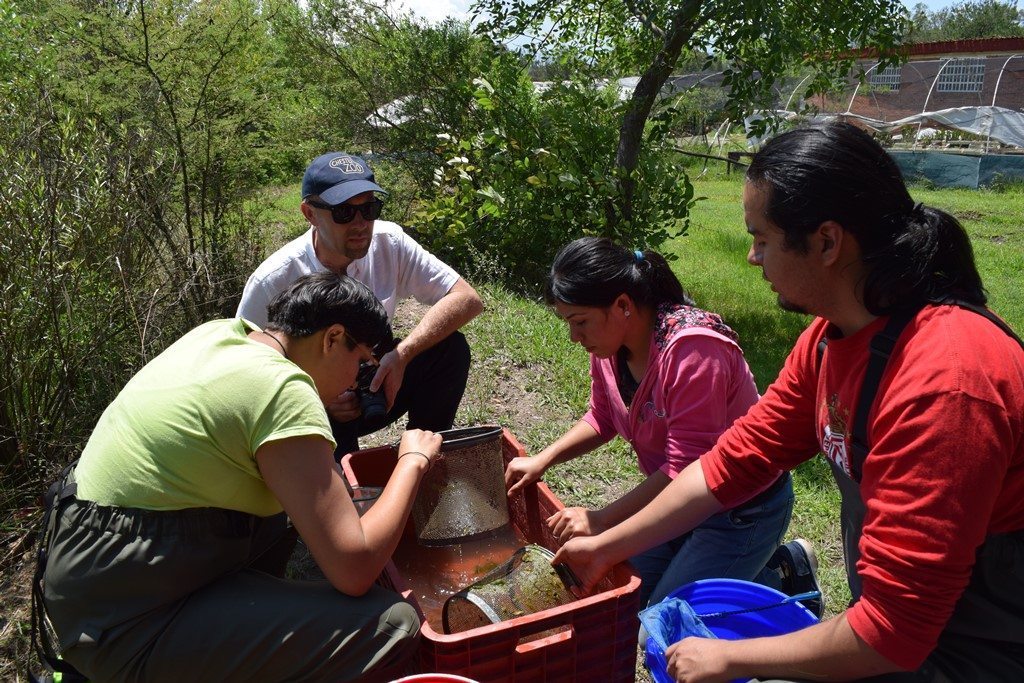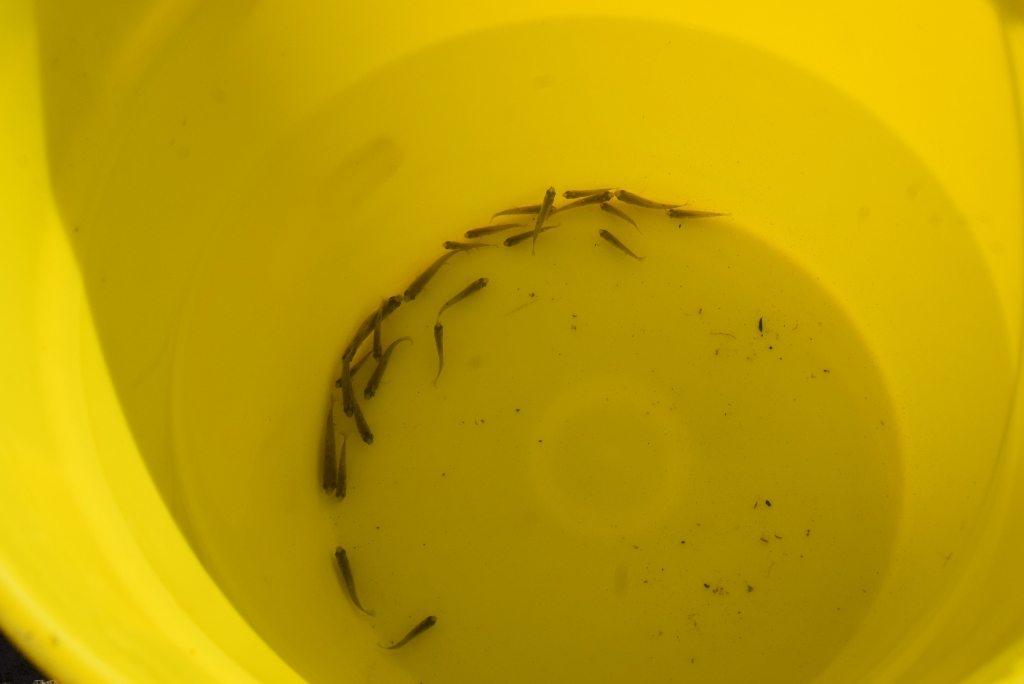Chester Zoo has been supporting the fish ark in Morelia, Mexico since 1996, long before starting work at the zoo in 2014 I had been aware of the work of Omar Dominquez and his team within the field of Goodeid conservation.
Goodeids are a subfamily of fish comprising of 41 species, almost all are endemic to the mountainous volcanic central state of Michoacan, several of the species are already extinct in the wild and many more are threatened by various factors including pollution and introduced species out-competing them for food, space and often predating on the Goodeid offspring.
When I was told that I would be visiting Morelia to see the work first hand, as a ‘Fish geek’ my excitement could hardly be contained! To visit a beautiful country to fish for species I had often read about in books and to represent Chester Zoo at the same time – it was almost a dream come true. I travelled with my colleague and fellow aquarist Nadia Jogee (read Nadia’s blog here).

Day 1
After arriving in Morelia late in the evening, our first full day was spent acclimatising ourselves to the beautiful city of Morelia. We enjoyed watching the relaxed Mexican way of life and the way Mexican people use these open public spaces for socialising and relaxing with family and friends.
Day 2
Today we were to visit the University and Aqua lab for the first time, the team at the aqualab consists of several departments and we met and worked alongside many people, including aquatic technicians, parasitologists and limnologists.
Day 3
We travelled back to the aqua lab to meet team leader Omar Dominquez and Rodolfo Perez Rodriguez. Omar had just returned from a field trip to the Gulf of Mexico where he was collecting marine fish from an offshore reef, he was extremely welcoming and gave us an overview of the tequila splitfin (Zoogoneticus tequila) project. He then invited us to accompany him to the university’s botanical department. Here the aqualab have two semi natural ponds which are filled with three species each.
Within the pool containing tequila splitfin several hard working students were busy setting fish traps and were collecting and sorting over 700 individuals of tequila splitfin to take back to the aqualab, undergo a period of quarantine before eventually being translocated back to the Rio Teuchitlan for reintroduction. We were allowed to help with this work at the semi natural ponds.

Day 4
We were collected from our hotel at 5am and drove five hours in a North West direction to the town of Teuchitlan and the Rio Teuchitlan, the type locality for the tequila splitfin – incidentally the fish did not get its name from the alcoholic drink produced in this area, it received its name from the nearby ‘Volcán de Tequila’.
The Rio Teuchitlan is the habitat of tequila splitfin and the location of the reintroduction of the same species. It’s a short river around 1.5 miles in length, it’s source is an underground spring located in the park known as ‘El Rincon’. The site has been developed as a water park for local residents to relax and swim. The crystal clear waters are an ideal reintroduction site and the residents of Teuchitlan have a vested interest in protecting this site from pollution.
Day 5
Still in Teuchitlan we headed to ‘El Rincon’ for the second part of the project; the University team had arranged to give a presentation to the locals as part of an ongoing project. Almost all of the residents of Teuchitlan now know and recognise the university and understand the work that they’re doing in this area. The local residents are very proud to host this work and many are actively involved in protecting the environment and ensuring that ‘El Rincon’ can be enjoyed by both local bathers and the native wildlife.

The trip was a complete success! We were able to witness first-hand the work that we had read so much about in several reports, however for me the lasting impression is the shear dedication of the Mexican scientists working in the field! They work tirelessly and battle numerous obstacles to protect the goodeid species that are found exclusively in the central Mexican states.
The tequila splitfin reintroduction is nearing the end after almost five years of hard work and dedication, the first fish are now being reintroduced and only time will tell if this project is successful. The planning has been meticulous and the ground work finished, now it is time to start to think of the next project! Many other species of goodeid are critically endangered and using the knowledge gained from this project, future reintroductions will certainly be possible. None of this could be possible without the support of Chester Zoo funds and encouragement, just another reason I am SO proud to work for the zoo.